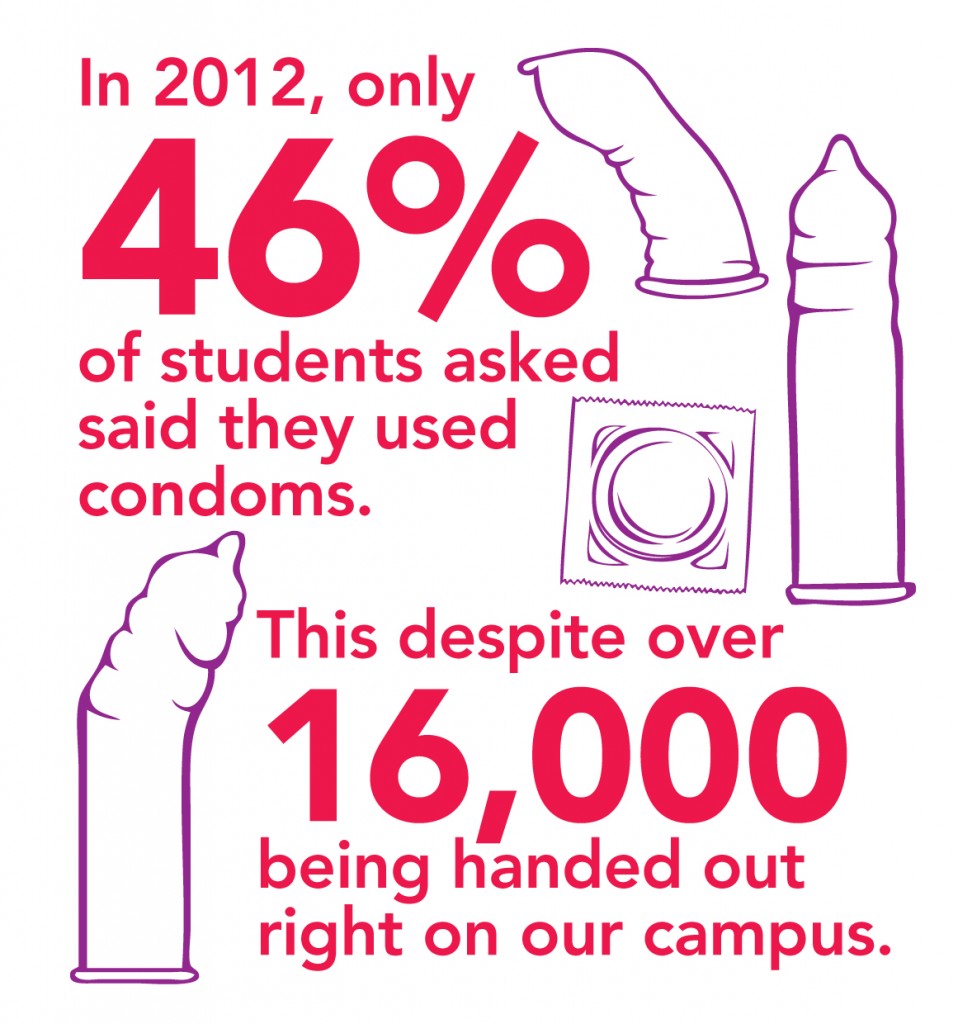
Women-only clinic tests for chlamydia and gonorrhea
Nine students from Dalhousie’s Introduction to Disease Prevention class will hold a free chlamydia and gonorrhea screening clinic on Wednesday.
A 2012 wellness survey revealed 46 per cent of Dal students didn’t use a condom during their last sexual encounter. That same year, a syphilis epidemic also began in Halifax.
The clinic is exclusively for women. The tests will be done by the patient through insertion of a vaginal swab.
“You do it yourself and we don’t ask any questions,” said Tara Moore, one of the students running the clinic.
The clinic is occurring between 10 a.m and 3 p.m, in room 224 of the Student Union Building. Canadian students must bring their health card while international students need to show their Dalcard.
Men provide urine samples for chlamydia and gonorrhea screenings because it’s uncomfortable to insert a swab up the urethra. The students running the clinic and their professor, Lesley Barnes, decided that urine tests would be too messy and unsanitary for non-professionals to handle.
Properly-used male condoms provide 98 per cent protection; female condoms, 95 per cent. But oral sex is usually performed without a condom or dental dam.
Jessie MacKay, one of the students running the clinic, said next year she’ll suggest the clinic provide esophageal or pharyngeal swabs to account for chlamydia or gonorrhea localized from oral sex. Men could also participate in that swab.
Capital Health provided the 200 swabs for the clinic. They will also be processing the results.
If a student tests positive for chlamydia or gonorrhea, Dr. Glen Andrea, head of Dal’s sexual health clinic, will call the student by Friday afternoon.
The students running the clinic will not see the results. They said if a student doesn’t receive a call by the afternoon of Friday, Nov. 21, the tests were negative.
If a student does have a positive test, she should get treatment. After the treatment, she should get tested again to ensure that the infection has been removed from her system.
The screening clinic is part of an assessment worth 50 per cent of the students’ marks in the disease prevention class. There were other options to write papers or present on diseases.
“The community clinic was the only thing [assignment option] that’s actually practice,” MacKay said. “[There are] certain complex issues that you wouldn’t have even thought when writing a paper on syphilis or STIs or contraction.”
MacKay said she wants to emphasize education on sexual health. Moore also said most people only know about sexual health from high school, which mainly emphasizes pregnancy, rather than STI prevention.
“Are you comfortable having a discussion with your boyfriend and both going and having a sexual health screening?” MacKay said.
“I think it is a mutual respect thing, and I think it’s a mutual conversation, and openness and a willingness to discuss something that could be embarrassing, and that could potentially not go the way you think because certain people are asymptomatic.”







